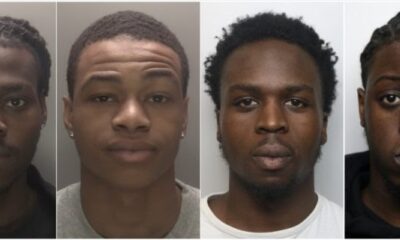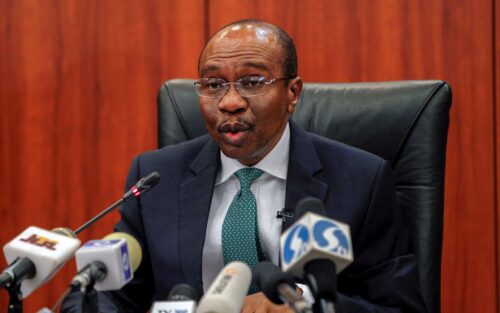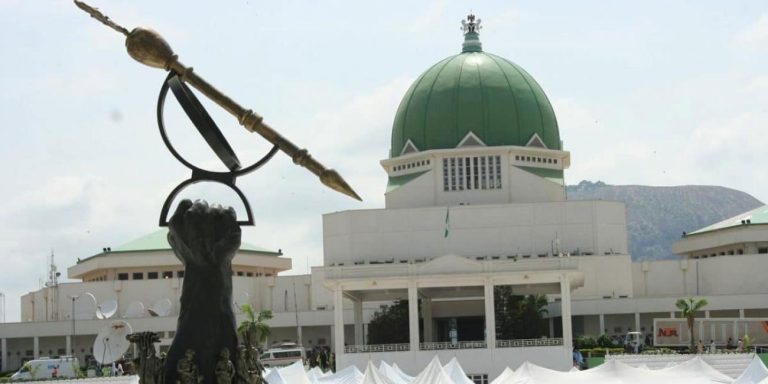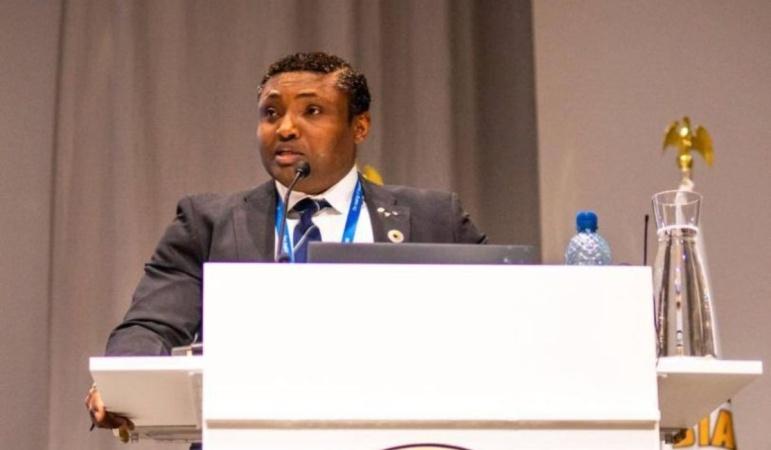Governor of the Central Bank of Nigeria, Godwin Emefiele, announced on Wednesday that the bank would release re-designed naira notes by December 15, 2022.
Emefiele made this announcement during a special press briefing in Abuja yesterday where he gave reasons for the move.
According to the CBN governor, this was targeted at controlling currency in circulation as well as curbing counterfeit currency and ransom payments to kidnappers and terrorists.
He noted, “Indeed, the integrity of a local legal tender, the efficiency of its supply, and its efficacy in the conduct of monetary policy are some of the hallmarks of a great central bank. “In recent times, however, currency management has faced several daunting challenges that have continued to grow in scale and sophistication with attendant and unintended consequences for the integrity of both the CBN and the country.
“More specifically, as of the end of September 2022, available data at the CBN indicate that N2.73tn out of the N3.23tn currency in circulation was outside the vaults of commercial banks across the country, and supposedly held by members of the public. Evidently, the currency in circulation has more than doubled since 2015, rising from N1.46tn in December 2015 to N3.23tn as of September 2022. I must say that this is a very worrisome trend that cannot continue to be allowed.”
On how it would help curb ransom payment, he said, “Also, in view of the prevailing level of the security situation in the country, the CBN is convinced that the incident of terrorism and kidnapping will be minimized as access to a large volume of money outside the banking used as a source of funds for ransom payment will begin to dry up.”
He further identified more reasons that necessitated the re-designing of naira notes.
According to the apex bank governor, the challenges included: significant hoarding of banknotes by members of the public; worsening shortage of clean and fit banknotes with the attendant negative perception of the CBN and increased risk to financial stability; and increasing ease and risk of counterfeiting evidenced by several security reports.
He added, “Indeed, recent developments in photographic technology and advancements in printing devices have made counterfeiting relatively easier. In recent years, the CBN has recorded significantly higher rates of counterfeiting especially at the higher denominations of N500 and N1,000 banknotes.”
The CBN governor further said that the re-designing of the currency would help to drive a cashless economy and it would be complemented by the increased minting of the e-Naira.
While according to global best practices, it is expected that central banks redesign, produce and circulate new local legal tender every five to eight years, the apex bank governor said that the naira had not been redesigned in the last 20 years.
In a speech later released to the press, it was noted that the new series of banknotes would be for only N100, N200, N500, and N1, 000 levels.
In an effort to clear off the money being hoarded by Nigerians as soon as possible, he said that existing notes would seize to be regarded as legal tenders by January 31, 2023.
Emefiele further urged Nigerians to proceed to their banks to deposit their naira notes, saying that the deposit fee would be waived for transactions below N150, 000.
He also directed all commercial banks to keep open their currency processing centers from Monday to Saturday so as to accommodate all cash that would be returned by their customers.
History of naira notes’ changes
Many adult Nigerians still remember several changes in naira notes in the last 30 years.
In 1973, the Federal Government decided to change from metric to decimal. This resulted in the change of the major unit of currency from pounds to naira and kobo.
On February 11, 1977, the then central bank introduced the N20 note, which was then the highest denomination.
It had the portrait of the late Head of State, General Murtala Ramat Muhammed, who was then seen as a national hero due to several reforms he was driving and his unfortunate assassination.
On July 2, 1979, the government introduced N1, N5, and N10, with engravings at the back of the notes reflecting various cultural aspects of the country, according to the CBN.
The country changed the colors of all banknotes in April 1984 except N50 kobo. The reason given at that time is similar today: To curb currency trafficking common at the time.
This was followed by the coining of N50k and N1.
The new government of Olusegun Obasanjo later decided to introduce N100, N200, N500, and N1000 banknotes in December 1999, November 2000, April 2001, and October 2005 respectively.
In February 2007, N20 was printed for the first time in a polymer substrate, while the N50, N10, and N5 remained in banknotes. Also, N1 and 50 kobo coins were reissued in new designs, and the N2 coin was introduced.
The coins did not gain wider currency at that time due to inflation and people’s penchant for banknotes. Many complained that the coins were too heavy.
On September 30, 2009, the then-CBN converted N50, N10, and N5 into polymer substrates.
In September 2010, the CBN issued the N50 polymer banknote. On December 19, 2004, it issued N100 commemorative banknote
Analysts divided
Economists are divided over the change of currency notes being planned by the apex bank.
A professor of Capital Market and Chairman of Chartered Institute of Bankers of Nigeria, Abuja Branch, Prof Uche Uwaleke, said the decision to replace some naira denominations with new ones would be positive for the economy in the medium- to long-term.
He said, “First, although the measure does not amount to demonetization of big currency notes often carried out by central banks to curb black money and corruption, it will go a long way in ensuring that a lot of naira notes circulating outside the banks are crowded in.
“If it leads to large deposits in banks, it means the banks will have more money to lend, which may reduce interest rates.
“I also think it may have the effect of reducing speculative attacks on the naira in the parallel market.
“I expect that the Financial Intelligence Unit will be on the watch-out for huge deposits as a way of monitoring illegitimate transactions.
He said despite the huge cost involved in changing currency notes, it was time to sanitize the system, especially as the electioneering activities had kicked off.
“However, I think the deadline of Jan 31 2023 is short in view of the number of naira denominations involved, from 100 to 1000. The CBN may consider extending it with time,” he said.
The Chief Executive Officer at the Centre for the Promotion of Private Enterprise, Dr. Muda Yusuf, said it was difficult to see any compelling value proposition of the currency redesign idea.
Yusuf said the cost of such an action would be outrageous and disproportionate compared to the expected benefits advanced by the CBN.
“At a time when the government is grappling with the high fiscal deficit, debt crisis, severe revenue crisis, and underfunding of many government projects and programs, it is most inappropriate to embark on such a profligate exercise. Currency as a percentage of the money supply is less than seven percent,” he said.
He noted that the exercise had no monetary policy significance, stressing that “it will come with huge logistics costs, and avoidable dislocations to small businesses, most of whom are in the informal sector.”
He further said there were more urgent issues demanding the attention of the CBN, particularly those around the foreign exchange.
“We have issues with liquidity in the foreign exchange market, the depreciating currency, the recent Moody’s downgrade of Nigeria, soaring inflation, and many more.
The CBN should save the citizens and the economy from the trauma of this currency redesign. It is a distraction we can do without.”
Northern group kicks
Meanwhile, a group, The Concerned Northern Forum, kicked against the re-design of the naira notes on Wednesday.
According to the group, re-designing the said Naira notes would cost the nation huge sums of money at the expense of taxpayers.
The group, while reacting in a statement through its spokesman, Abdulsalam Kazeem, in Kaduna on Wednesday, expressed concern that the re-designing of the naira notes would not add value to the standard of living of Nigerians and as such, the exercise was unacceptable.
He said, “The attention of the leadership of Concern Northern Forum has been called to a press conference organized by the current central bank governor in Abuja, where he stated that (CBN) has redesigned the #200, #500, and #1000 naira notes, effective December 15, 2022.
“This to us is nothing but a sign of incompetency. Our economy as a nation is down and our Naira has depreciated to a minimal value all the Leadership of the Central Bank of Nigeria could offer us as a solution to the above is to redesign our currency.
“The redesigning of the said currency will only cost our nation huge sums of money at the expense of taxpayers.
“This is coming at a period when we are borrowing to fund significant parts of our annual budget and significant parts of the borrowing go to debt servicing and yet the only solution the apex bank could offer is to redesign our currency.
“We are concerned as representatives of our people and region. If we may ask; will the new design make our currency gain value at the exchange rate market? Will it add value to the standard of living of the citizenry of our region and the nation at large? These are some questions begging for immediate answers!
“If no satisfactory answers are provided (as we already expect none) for the above questions, the apex bank should immediately stop the process of the new design, or else it will be resisted by us in collaboration with other concerned civil society organizations from within and outside our region.
“To set the record straight, look at the current exchange rate of a Naira to a dollar or pounds and you will agree with us that our currency has lost its value completely and what we need now are serious economic policies that will strengthen our Naira against dollar and pounds and anything short of this, is unacceptable by us. We believe it would inflict more against the value of our revered naira.
“The decision to redesign the Naira is obviously to empower certain individuals, consultants, or contractors who are desperate to make something before the end of the current administration, this idea should be rejected by all and sundry at any rate, since it’s not in the interest of the nation and it will add no value to the current multiple economic challenges the nation is facing due to bad economic policies of the current central bank governor.”
Credit: The Punch

 BIG STORY4 days ago
BIG STORY4 days ago
 BIG STORY4 days ago
BIG STORY4 days ago
 BIG STORY4 days ago
BIG STORY4 days ago
 BIG STORY3 days ago
BIG STORY3 days ago
 BIG STORY5 days ago
BIG STORY5 days ago
 BIG STORY4 days ago
BIG STORY4 days ago
 BIG STORY5 days ago
BIG STORY5 days ago
 BIG STORY21 hours ago
BIG STORY21 hours ago




















